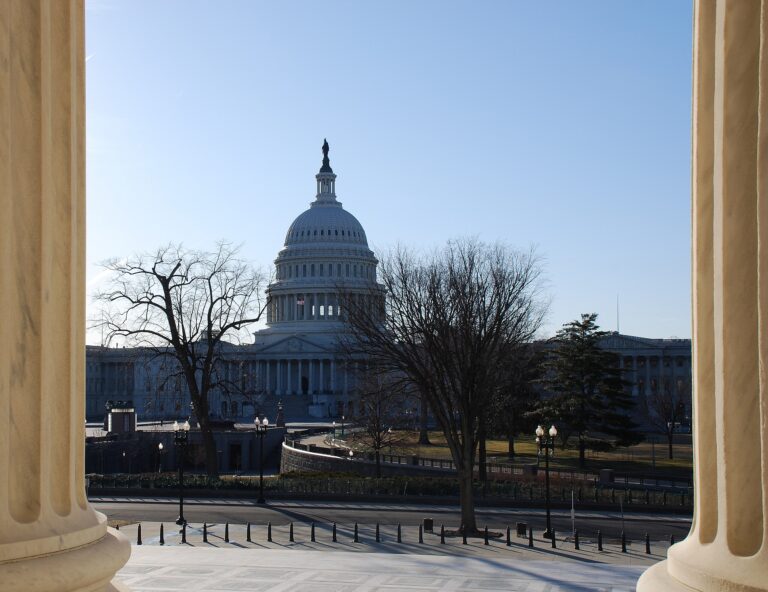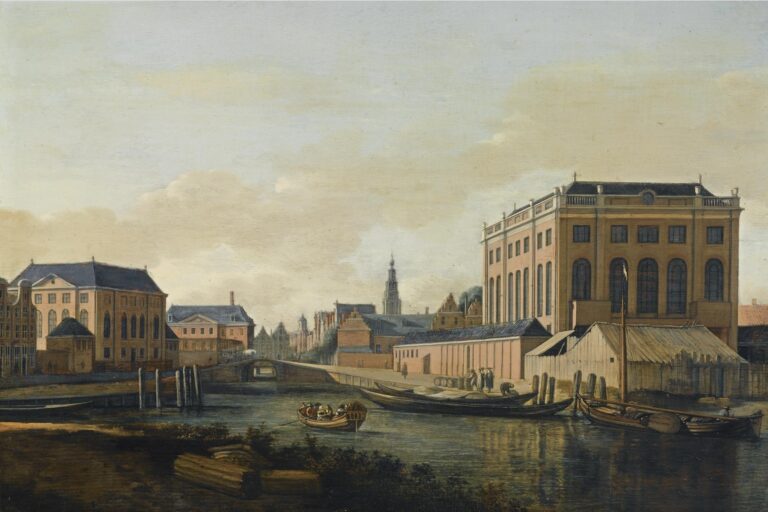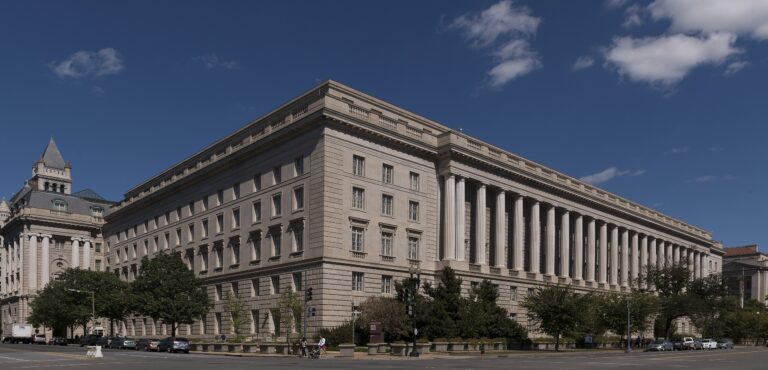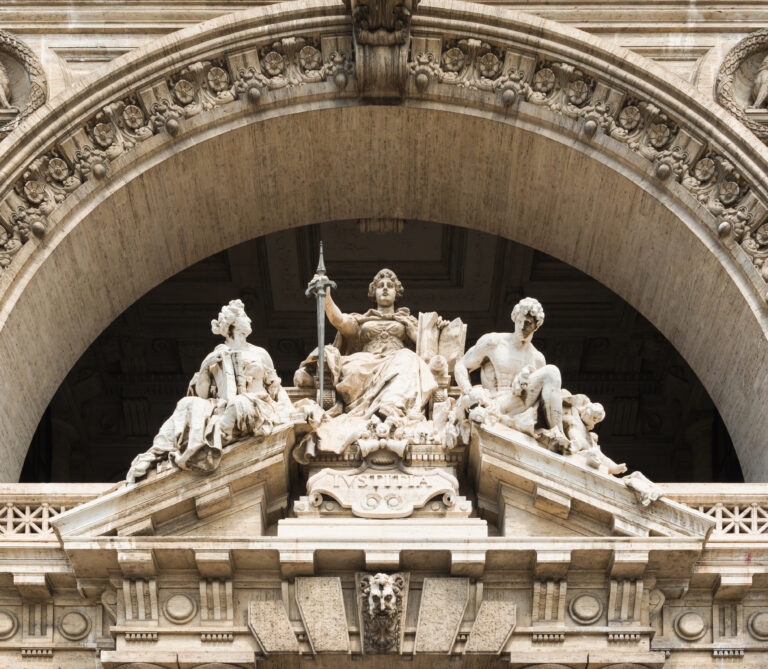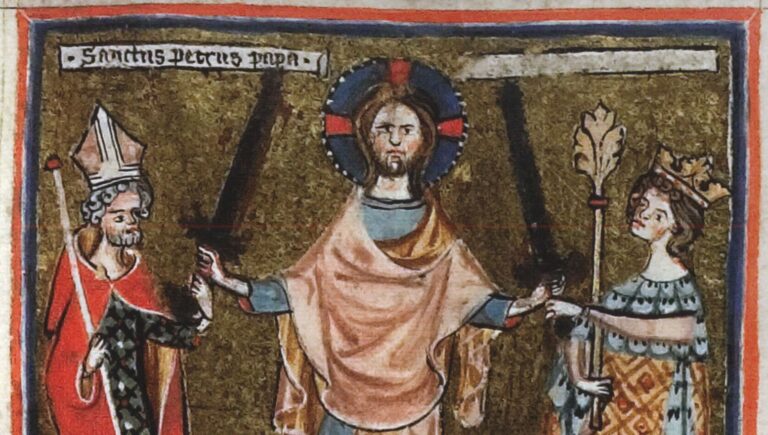
Christian Natural Law and Religious Freedom
Alex Deagon
The following is an excerpt from Chapter 5 of Alex Deagon’s new book, Christian Natural Law and Religious Freedom: A Foundation Based on Love, the True, and the Good (Copyright 2025 by Imprint). Reproduced by permission of Taylor & Francis Group. Page numbers refer to publications linked in the text.
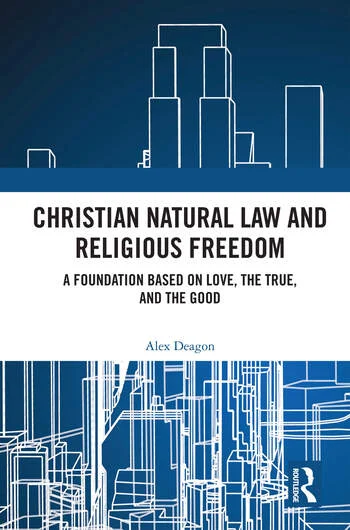
The virtues of secular liberal democracy such as freedom and equality (which produce religious freedom) in turn have their foundation in Christian ideas.1See eg Perez Zagorin, How the Idea of Religious Toleration Came to the West (Princeton University Press, 2003); Bruce Ward, Redeeming the Enlightenment: Christianity and Liberal Virtues (Eerdmans, 2010); John Witte Jr. and Frank Alexander (eds), Christianity and Human Rights (Cambridge University Press, 2010); John Milbank and Adrian Pabst, The Politics of Virtue: Post-liberalism and the Human Future (Rowman and Littlefield, 2016) Various studies have found that Christianity and religious freedom are the foundation for constitutional democracy. One example is a famous article by Robert Woodberry which shows that missionary activity laid the foundation for the thriving liberal democratic societies we are part of today.2See also Kody Cooper and Justin Dyer, The Classical and Christian Origins of American Politics: Political Theology, Natural Law, and the American Founding (Cambridge University Press, 2022) Indeed, Christianity has been the major influence on the formation of liberal constitutional democracies with religious freedom.3Other scholars who have traced Christian influences in the Western Legal Tradition include Quentin Skinner, The Foundations of Modern Political Thought I and II (Cambridge University Press, 1978); Harold Berman, Law and Revolution: The Formation of the Western Legal Tradition (Harvard University Press, 1983); Remi Brague, Eccentric Culture: A Theory of Western Civilization (St Augustine’s Press, 2009) Christianity is therefore “a deep and enduring source of human rights and liberties in the Western legal tradition,” including religious freedom (chs. 1-3). Respect for the dignity of the individual, human rights, a commitment to equality, and concern for the poor are largely foreign to ancient religions, and reflect the uniquely Christian claims that humans were created in the image of God and that God sacrificed himself for the good of humans through Christ (206-207). Samuel Moyn’s careful and attentive exposition shows how Christianity underpins modern human rights discourse – not only through vague appeals to Christian conceptions of dignity which overlook inimical Christian conduct over the centuries, but more compellingly through the concrete anxieties of World War II atrocities which led to human rights being a project more of the Christian right than of secular liberals. And consequently it is religious freedom in the Christian tradition which remains the cornerstone for protection of many other rights… because religion provides the ethical grounding necessary to a human rights regime; because it underpins notions of human dignity, community, and human nature and need; and because of the place of religious institutions alongside the state in realizing rights, especially in transitional societies (118-119).
Thus, the idea of religious freedom has an intrinsic connection with a Christian framework grounded in natural law. Religious freedom relies on respecting the dignity of the individual and their capacity to believe and reason, and creating the conditions where a person can believe, gather and act freely. These correspond to the idea of the common good as respecting the rights of individuals and creating a peaceful and just order in which persons can flourish as individuals and as a community, including through the practice of religion. As Garnett concludes, religious freedom “is a crucial aspect of the common good, one in which – like clean air and safe roads – everyone has a stake” (194, 200). Since religious freedom contributes to a thick and wide conception of the common good grounded in a Christian Natural Law, the true nature of religious freedom as substantively good and universally common is revealed. This provides persuasive appeal for the idea of religious freedom even to those who may not subscribe to the specific metaphysical premises of Christian Natural Law.
This returns us to the issue of where religious freedom fits with the common good in the schema of Christian Natural Law. According to Aquinas, the “common good sought by human law” is “peace within the community and attainment of individual habits of virtue of its members’; this is the “natural and supernatural common good of man” (314). The natural and supernatural common good includes “religion” and “salvation.” ‘Therefore, in order that man might have peace and virtue, it was necessary for laws to be framed.” As such, law “is not an end in itself: all law must be an ordinance of reason directed to the common good, and every level of the legal architecture is ultimately ordered to the highest common good, the end of the eternal law, God himself,” (340).
The political common good is a component of the “higher common good of the natural and divine laws and ultimately the eternal law,” which means a law must be proximately directed to the political common good and ultimately directed to the “‘common good of all men as fixed by the eternal law”” in order to be just (340). The form of just human laws must provide that any burdens created are laid equally in proportion with a view to the common good. This means “pursuing the common good does not exclude pursuing something advantageous to an individual member as long as the contemplated action benefits the common good and also the private good of the individual” (342). Similarly, it is inconsistent with the common good and unjust for a law to disproportionately burden any individuals and communities who are part of the political community. This may mean appropriate limitation of individual goods with regard to the common good (342-343).
Crowe concludes that the common good is “plausibly best realised” when we provide space (norms of non-interference) for people to pursue the basic goods and positive duties to facilitate people’s pursuit of the basic goods (242). In a religious freedom context, this implies non-interference with people pursuing the good of religion, and legal protection to facilitate people’s pursuit of the good of religion. Appropriate and proportionate limitation of other individual goods for this purpose are just because, as demonstrated in the previous part, religion and religious freedom is an essential aspect of the common good. Concordantly, limitation of religious freedom which disproportionately burdens individuals and communities, ostensibly for the pursuit of some individual good, is unjust because it detracts from the common good.
Therefore, the common good allows the reconciliation of two contradictory features of political authority: its ultimate purpose is to serve the good of individuals, and “it can require the subordination of individual goods to the good of the community” (389). This also means there is a generic moral obligation to obey the law to create a stable and just system for pursuing the basic goods, which is part of the common good. However, if there are “grossly unjust laws” which entail “obvious or exceptional cases of injustice,” then obligation to obey the law may be defeated (390-391). That is, if there is a law which directly impedes a basic good, such as a law disproportionately restricting religious freedom (which impedes the good of religion), then that law may not possess authority because it unjustly damages the common good. According to Christian Natural Law then, religious freedom consequently may entail disobedience to an unjust law which damages the good of religion and therefore the common good. However, as we shall see in a moment, a more coherent approach which upholds a stable and peaceful political order, just laws, the common good and the basic goods is to provide legal accommodation to protect religious freedom (for example, by providing positive legal rights for religious freedom).
Religious freedom in this sense also “protects religion” by “encouraging the pursuit of religion within multiple groups and sites of authority,” which “secures the free creation of communities of solidarity, fraternity, and charity” (21-22). Religious freedom not only protects against coercing faith, but facilitates the quest for “true religion” through providing freedom to individuals and communities which seek transcendent truth for the good of both the individual (as suggested in Part III) and the broader community (as suggested in Part IV), or the common good (142-143). As Harrison summarises:
The pursuit of “true religion” then – that is, a quest to orient oneself rightly in relation to God – is also an orientation for the entire community. It is neither simply an extra-temporal good – an end outside of history – nor a single good for individual choosing. Rather, it shapes our institutions, our actions, and our communal economic and political life. As integral to the common good, true religion shapes the bringing about of recognisable social goods – hospitals, schools, institutions of care, cooperative work endeavours, and sites of worship. Civil authority is tasked with pursuing the common good, a vision of right relationship in which virtuous living is encouraged (158).
In addition, religion only becomes a virtue when it cares for truth and takes into account the common good (131). This is consistent with the purpose of just laws, and the common good itself, being to train in virtue. So it is also just and necessary for laws to protect religious freedom as a pursuit of true religion, because such laws facilitate the pursuit of religion as a virtue, which is part of the common good. Since religious freedom is the “desirable” quest for the pursuit of true religion which shapes our good life, Harrison suggests that religious claims should be generously accommodated (23-24). Taliaferro agrees, observing that “the use of natural law theory in actual jurisprudence on religious freedom might result in an increased use of the legal standard of “‘reasonable accommodation’” because it “employs constructive dialogue and negotiation” (139).
Religious freedom, or the freedom to believe and act in accordance with one’s convictions, therefore has “eminently social implications’ and is ‘a necessary prerequisite for and the result of human flourishing’ (251 of Natural Law and Religious Freedom). It is grounded in a “transcendent source of morality,” a Christian Natural Law (251-253). Intrusion into that liberty may only be justified where the interference is “based on some objective good” which yields good for individuals and the community (251). Thus, religious freedom enhances the common good (94-98) by respecting the dignity of persons with freedoms, facilitating the creation of communities which enhance “cooperative order” among citizens, and by contributing to social peace (286, 298-300). As discussed in Part IV, the idea of cooperative order is intrinsically linked to the virtue of charity or love, the creation of a mutually responsible and dependent care for each other, oriented towards the love of God. The law of love, the principle to love your neighbour as yourself, also reflects the substantive nature of the common good as concerned for the good of the individual in community with others. This points to the third aspect of a Christian Natural Law: Love, which we will explore in the final chapter. Understanding religious freedom as the pursuit of “true religion” also points to the second aspect of a Christian Natural Law which undergirds religious freedom: the True. This will be explored in the next chapter.
This chapter has considered how the Good provides an essential aspect of a Christian Natural Law foundation for religious freedom. It argues that the Good is anchored in God as the paradigm of good and is comprised of the basic goods and the common good. The basic goods of religion and practical reasonableness combine to provide that it is good for humans to reflect on their relationship with the divine, seek to order their lives in harmony with the divine, and exercise their conscientious judgement in doing so. The law ought to respect and consequently protect the ability of humans to practically reason and seek true religion (177-194). Practical reasonableness also requires consideration of the common good, which can be defined as a just and peaceful political order which respects the dignity of humans and their inalienable rights (including religious freedom) and therefore enables humans to flourish individually and as a community. Religious freedom enhances the common good because it demonstrably upholds a stable and peaceful political community, supports human dignity and rights, and facilitates the flourishing of individuals in community. Since the common good entails a peaceful and just political order along with the development of virtue through the pursuit of true religion, a peaceful and just political order which has the common good as its purpose should provide appropriate and proportionate legal protection for religious freedom. This is one pillar of the Christian Natural Law foundation for the idea of religious freedom, and its reliance on the common good means it has universal appeal. The next chapter considers the True as an essential aspect of a Christian Natural Law foundation for religious freedom, which is the pursuit of true religion.

Dr. Alex Deagon is an Associate Professor in the School of Law, Queensland University of Technology. He is an internationally recognised researcher in jurisprudence, law and theology, law and religion, and religious freedom. Alex’s book, Christian Natural Law and Religious Freedom: A Foundation Based on Love, The True, and the Good, was published in 2025 with Routledge. He is also the founding co-editor of the Australian Journal of Law and Religion.
Recommended Citation
Deagon, Alex. “Christian Natural Law and Religious Freedom.” Canopy Forum, July 24, 2025. https://canopyforum.org/2025/07/24/christian-natural-law-and-religious-freedom/.
Recent Posts



